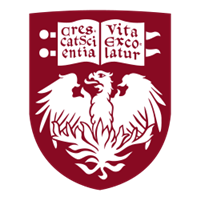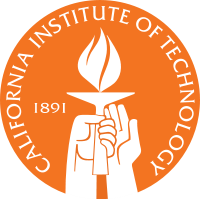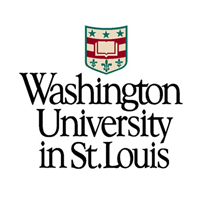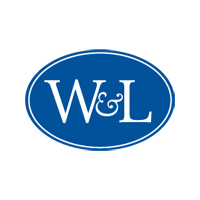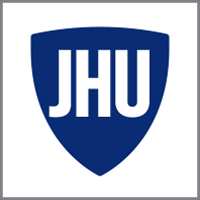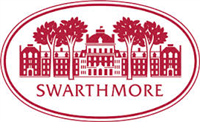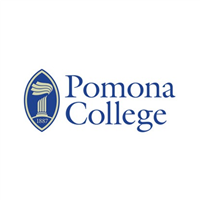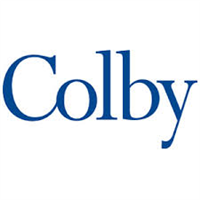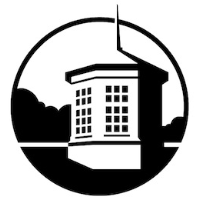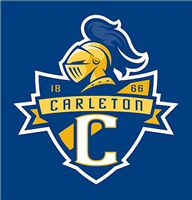 Almost all colleges and universities in the United States offer some sort of athletic program. Division III, or D3, is a division of the National Collegiate Athletic Association (NCAA) These are colleges and universities that do not offer athletic scholarships to their student-athletes.
Almost all colleges and universities in the United States offer some sort of athletic program. Division III, or D3, is a division of the National Collegiate Athletic Association (NCAA) These are colleges and universities that do not offer athletic scholarships to their student-athletes.
For students who are interested in participating in sports at a high level, but want to focus more on their studies and other extracurriculars than spend time on the field, D3 colleges offer a fantastic opportunity.
Top 25 Best D3 Colleges
Massachusetts Institute of Technology, or MIT, offers up to a doctorate degree with many undergraduate students focusing on Computer Science, Mechanical Engineering, and Mathematics. Approximately 27,000 applications are received by the school each year. Alumni have gone on to found companies like Intel, Koch Industries, Dropbox, and Campbell Soup.
Location
Cambridge, MA
Institution Type
Private
Student Enrollment
11,858
The University of Chicago receives 38,600 applications though only 5% are accepted. Most often, accepted students have test scores in the range of 34 - 35 for ACT or 1,510 - 1,560 for SAT. The school is made up of their undergraduate college and five graduate research divisions. They also have campuses all over the world from Hong Kong to Paris.
Location
Chicago, IL
Institution Type
Private
Student Enrollment
18,339
Also known as Caltech, the California Institute of Technology’s motto is, “the truth shall make you free.” Computer Science and Mechanical Engineering are top majors among students, and there have been over 75 Nobel laureates associated with Caltech (including 40 alumni and faculty members). The school is classified as “Doctoral/Research Universities--Extensive.”
Location
Pasadena, CA
Institution Type
Private
Student Enrollment
2,401
Washington University in St. Louis was named after George Washington and founded in 1853. A private research university, the school receives around 32,000 applications a year and accepts about 3,870 students annually. Commonly chosen majors are Computer Science, Experimental Psychology, and Finance. Top sports on campus include Basketball, Football, and Track and Field and Cross Country.
Location
Saint Louis, MO
Institution Type
Private
Student Enrollment
17,012
Originally known as the Augusta Academy and established in 1749, it would later be named after George Washington and Robert E. Lee, the latter of which was the president of the school for five years. With blue and white colors, students and athletes go by the nickname The Generals. The university boasts a first year retention rate of 98% and a student to faculty ratio of 7 to 1.
Location
Lexington, VA
Institution Type
Private
Student Enrollment
2,243
Although it was originally founded as a men’s college in 1793, the school is now composed of 48% men and 52% women. It was created out of the funds of Ephraim Williams, who died in the French and Indian War. The college receives about 11,000 applications each year and accepts 10% of students.
Location
Williamstown, MA
Institution Type
Private
Student Enrollment
2,222
Johns Hopkins University was founded in 1876 and named for its first benefactor. Known as the first research university in the country, its motto in Latin is, “veritas vos liberabit,” or “the truth will set you free.” The Blue Jays men’s lacrosse team plays in the Big Ten Conference and has over 40 national titles. The two most popular majors are Cell/Cellular and Molecular Biology and Public Health.
Location
Baltimore, MD
Institution Type
Private
Student Enrollment
31,275
Bowdoin College is a very selective school with an acceptance rate of 8%. 82% of students will graduate within four years, and 96% within six. The college also has first year retention rate of 96%. Bowdoin College offers 34 different majors and participates in joint Engineering programs with Columbia, Dartmouth, Caltech, and the University of Maine.
Location
Brunswick, ME
Institution Type
Private
Student Enrollment
1,915
Swarthmore College was one of the first coeducational colleges in the country. It is associated with the University of Pennsylvania through the Quaker Consortium, which means students can take classes at the four schools within the arrangement. 53% of students receive institutional grant aid to attend, $59,421 on average.
Location
Swarthmore, PA
Institution Type
Private
Student Enrollment
1,625
Pomona College receives 12,100 applications and accepts 7% of them. The four commonly chosen majors are Computer Science, Econometrics and Quantitative Economics, Mathematics, and Political Science and Government. The school was created when the founders wanted to recreate a “college of the New England type.” Their mascot is Cecil the Sagehen.
Location
Claremont, CA
Institution Type
Private
Student Enrollment
1,716
Claremont McKenna College, which accepts 11% of applicants, was founded as a men’s college in 1946. It became co-educational in 1976. The most commonly chosen major is Econometrics and Quantitative Economics. With a strong 8 to 1 student-to-faculty ratio, 96% of students will stay after their freshman year.
Location
Claremont, CA
Institution Type
Private
Student Enrollment
1,389
Carnegie Mellon University is known for being an extremely selective school and receives approximately 34,000 applications every year. A merger between Carnegie Institute of Technology and the Mellon Institute of Industrial Research in 1900 created the school we know today. Some popular majors include Computer Science, Electrical and Electronics Engineering, and Business Administration and Management.
Location
Pittsburgh, PA
Institution Type
Private
Student Enrollment
16,002
Emory University received 32,000 applications last year and had an acceptance rate of just 11%. It has a strong 95% first year retention rate, 83% four year graduation rate, and 9 to 1 student to faculty ratio. There are nine academic divisions in this school including Emory College of Arts and Sciences, Laney Graduate School, Rollins School of Public Health, and others.
Location
Atlanta, GA
Institution Type
Private
Student Enrollment
14,841
Wellesley College is a private women’s liberal arts college going back to 1870. It is the largest of all-women colleges and has seen famous alumni including Hillary Clinton, Madeleine Albright, and Katharine Lee Bates. Econometrics and Quantitative Economics is the most commonly chosen major, but other popular choices include Computer and Information Sciences, Neuroscience, and Political Science and Government.
Location
Wellesley, MA
Institution Type
Private
Student Enrollment
2,447
Tufts University receives around 34,000 applications a year and accepts 10% of students. It got its start as Tufts College and was a small liberal arts college. In the 1970s, it became a research university. The university offers over 70 undergraduate programs; Econometrics and Quantitative Economics and Computer Science are the most popular.
Location
Medford, MA
Institution Type
Private
Student Enrollment
13,431
Harvey Mudd College offers programs only related to Science and Engineering. It has a low 13% acceptance rate, 97% first year retention rate, and 8 to 1 student-to-faculty ratio. Part of the Claremont Colleges, their colors are black and gold. The men’s teams are known as the Stags and the women are known as the Athenas.
Location
Claremont, CA
Institution Type
Private
Student Enrollment
922
With an acceptance rate of 10%, Amherst College is a extremely selective school. A majority of their first-year students come from New York. The third oldest institution of higher education in the state, it was originally a men’s college. It became coeducational in 1975. Amherst College’s motto is “terras Irradient,” which means “let them enlighten the lands.”
Location
Amherst, MA
Institution Type
Private
Student Enrollment
1,898
Commonly called NYU, you can find this university in the heart of Manhattan. They have a relatively low acceptance rate of 9%. Liberal Arts and Sciences/Liberal Studies is the top major, but Econometrics and Quantitative Economics, Research and Experimental Psychology, and Registered Nursing are not far behind. The school has produced a number of famous alumni including Martin Scorsese, Jack Dorsey, Robert Muller III, and Alec Baldwin.
Location
New York City, NY
Institution Type
Private
Student Enrollment
59,144
Babson College began as an all-male school in 1919, originally known as Babson Institute. It would become coeducational in 1969. The school has an astounding 95% first year retention rate and 88% four year graduation rate. The only major available is Business Administration and Management, General. Athletes compete in the NCAA Division III and are known as the Beavers.
Location
Wellesley, MA
Institution Type
Private
Student Enrollment
3,989
With 57 areas of study, the most popular major for Hamilton students is Economics, but Biology/Biological Sciences, Political Science and Government, and Research and Experimental Psychology are also popular choices. Their motto is in Ancient Greek: Γνῶθι Σεαυτόν, which translates to “know thyself.” The school has been coeducational since 1978 after merging with its sister school, Kirkland College.
Location
Clinton, NY
Institution Type
Private
Student Enrollment
2,072
A smaller school, Colby College is very selective with only a 7% acceptance rate, boasts a strong student-to-faculty ratio of 10 to 1 and 93% first year retention rate. 82% of students will go on to graduate within 4 years, and 90% within six. Econometrics and Quantitative Economics and Political Science and Government are the two most popular majors.
Location
Waterville, ME
Institution Type
Private
Student Enrollment
2,299
Wesleyan University’s top majors include Econometrics and Quantitative Economics, Psychology, and Political Science and Government. The school was founded as a men’s college and became fully co-educational in 1970. The campus is located on the bends of the Connecticut River. Cardinal and black are the official school colors of Wesleyan’s sports teams.
Location
Middletown, CT
Institution Type
Private
Student Enrollment
3,253
Haverford College is a liberal arts school founded in 1833 by the Religious Society of Friends, also known as Quakers. It’s part of the Tri-College Consortium which means students can attend classes at nearby schools Bryn Mawr and Swarthmore. “Non doctior, sed meliore doctrina imbutus,” or "not more learned, but steeped in a higher learning," is the school’s motto.
Location
Haveford, PA
Institution Type
Private
Student Enrollment
1,421
Part of the Midwest Conference, the most popular sports at Carleton College include Track and Field and Cross Country, Football, and Swimming and Diving. They’re known as the Knights and wear blue and maize for school colors. Biology/Biological Sciences is the top major, with International Relations and Affairs, Computer Science, and Research and Experimental Psychology also being popular choices.
Location
Northfield, MN
Institution Type
Private
Student Enrollment
2,059
Vassar offers 50 majors with the most popular being Research and Experimental Psychology, Economics, and Political Science and Government. The school has an acceptance rate of 18%. A few notable Vassar graduates or attendees include Anne Hathaway, Jane Fonda, Jacqueline Kennedy Onassis, and Anthony Bourdain.
Location
Poughkeepsie, NY
Institution Type
Private
Student Enrollment
2,459
What Does D3 Mean?
The National Collegiate Athletic Association (NCAA) is an organization that regulates student athletics throughout the United States, Puerto Rico, and Canada. There are several divisions under the NCAA, including Division III or D3.
D3 in particular refers to colleges and universities who do not offer their student-athletes athletic scholarships if they attend. These schools are required to have at least three team sports for each gender, cannot delay a first year’s participation in order to lengthen eligibility periods, and don’t receive revenue from their athletic programs. D3 schools also can’t ask students for a National Letter of Intent.
Some D3 schools do have one or two Division I programs at their school, however. In these cases, athletic scholarships can be offered to students participating in those specific programs.
Around 430 schools are considered D3 today, including liberal arts colleges, private schools, large universities, small colleges, and more.
Is a D3 College Right for You?
For many students, especially those who don’t play sports, athletics programs at colleges and universities may seem like an afterthought. However, if you love the field, attending a school with a strong athletic program may be a priority.
Division III colleges may not offer athletic scholarships to their student athletes, but that doesn’t mean they’re not worth considering if you want to play sports while you earn your degree. Many of these schools offer merit aid and merit-based scholarships.
One concern students may have is the level of competition. Athletes who attend D3 schools are still among some of the best out there, so you’ll still be playing the game at a high level. While most students who go on to play professionally come from Division I, some do graduate from D3 schools, too.
And while these schools may not offer financial aid directly tied to your athletic ability, they may offer other scholarships that can be granted for your leadership skills, grades, and demonstrated financial need.
A major benefit of attending a D3 school is the flexibility it brings to your education. You can continue playing your sport of choice at a high level while being able to dedicate ample time to your degree and any other extracurriculars that are important to you.
RELATED: What’s the Difference Between NCAA Divisions (D1 vs D3)?
Methodology
Colleges are ranked based on a combination of factors, including graduation rates, campus diversity, endowment per student, and other data as reported via the National Center for Education Statistics (NCES) for the most recently available enrollment year. Some colleges may have been excluded from rankings based on certain criteria, including specialization and classification. Learn about our full methodology.
College Raptor is uniquely qualified to estimate college affordability as we are a leading provider of net price calculators to colleges across the U.S. Check out College Raptor’s free match tool to see if your favorite college is affordable for you.
 Almost all colleges and universities in the United States offer some sort of athletic program. Division III, or D3, is a division of the National Collegiate Athletic Association (NCAA) These are colleges and universities that do not offer athletic scholarships to their student-athletes.
Almost all colleges and universities in the United States offer some sort of athletic program. Division III, or D3, is a division of the National Collegiate Athletic Association (NCAA) These are colleges and universities that do not offer athletic scholarships to their student-athletes.
